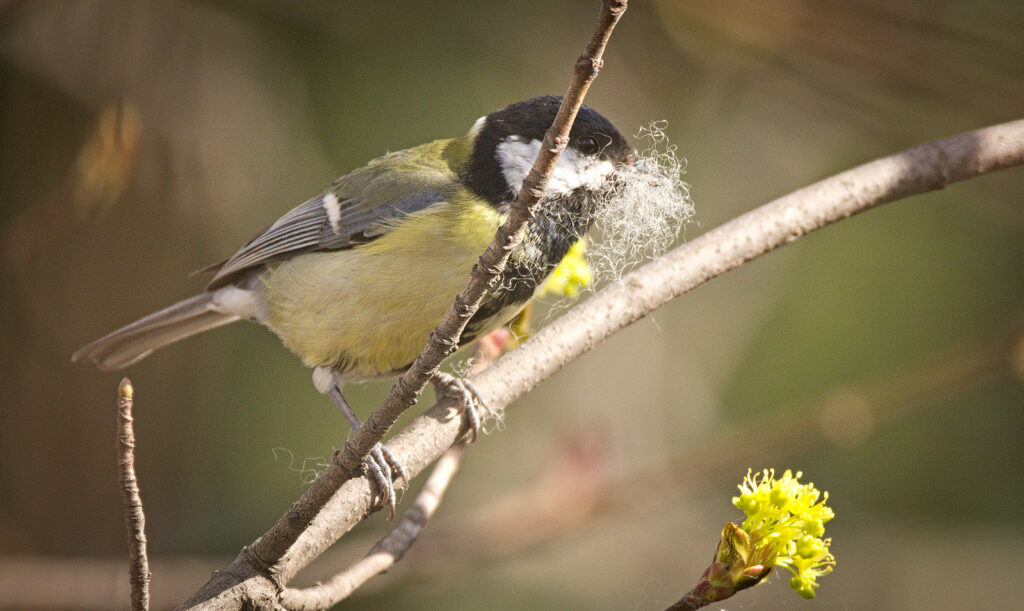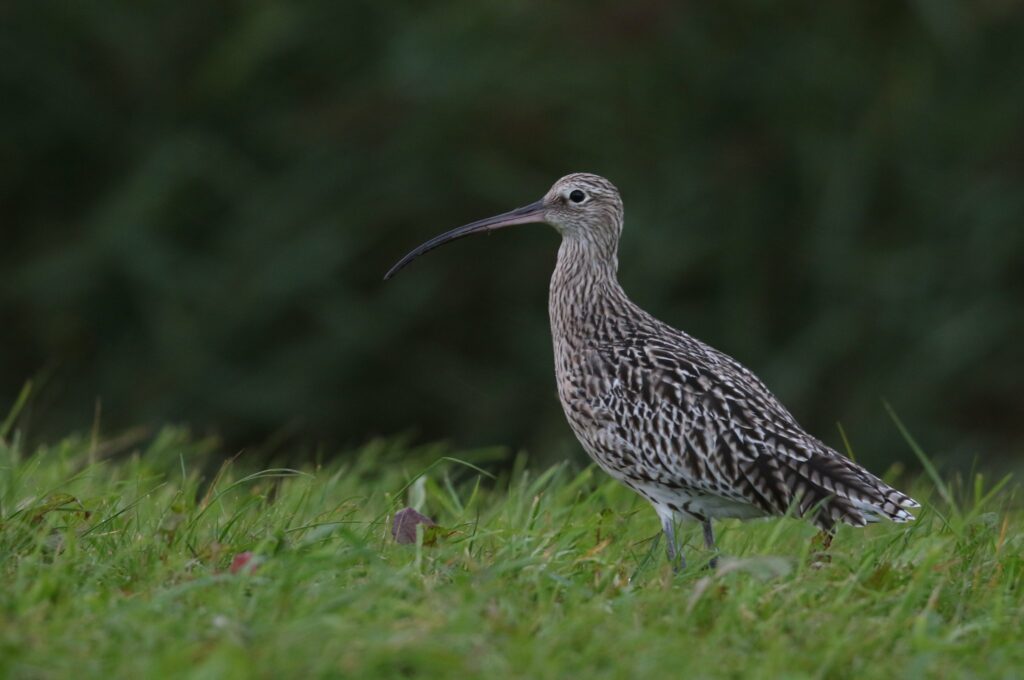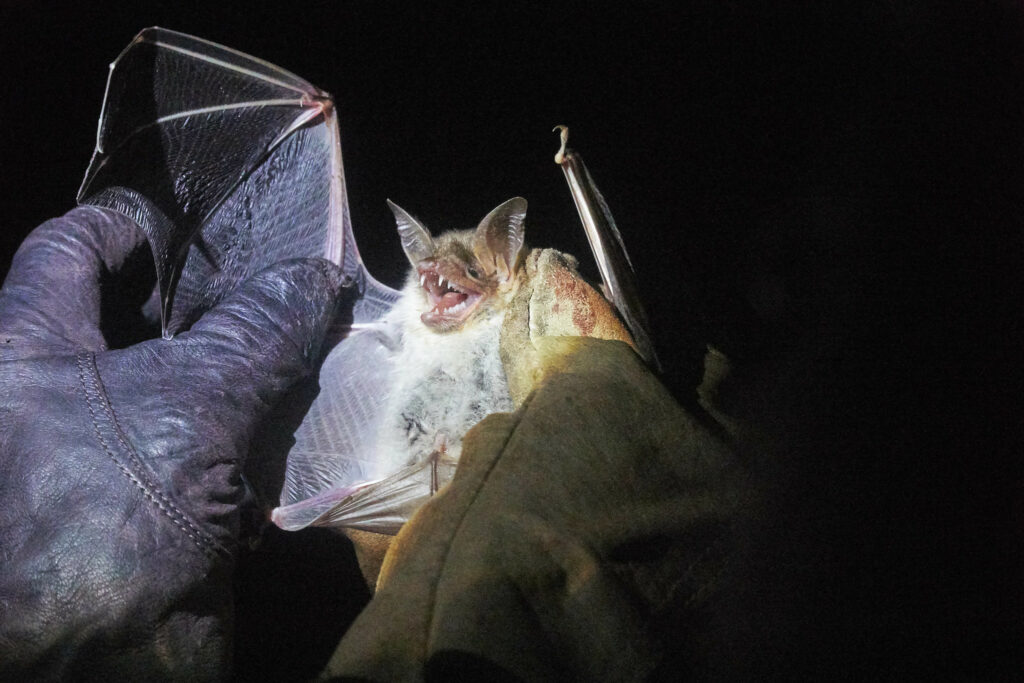Pollution
Flea and tick treatments are contaminating songbird nests. A recent study surveyed 103 tit nests that utilised pet fur in construction, and found that 100% were contaminated with fipronil, a chemical component of pet flea and tick treatments that is banned for agricultural use in the UK and the EU. Contaminated nests were found to have an increased number of unhatched eggs and dead chicks, placing significant pressure on breeding bird populations. The findings have led to calls for a thorough environmental risk assessment of veterinary treatments, and to consider restricting their use as a preventative measure to an active treatment.

The Arctic carbon sink is now a source of emissions, a new study concludes. Rising temperatures in the Arctic landscape are facilitating the release of vast amounts of carbon dioxide, which is currently stored in the region’s permafrost, and over 40% of this is now significantly contributing to greenhouse gas emissions in the context of global warming. The effects of rising temperatures are also reflected by visual changes in the landscape – ground collapse, increased plant growth, microbial domination – and changes in the carbon cycle in the region.
Environment
Wales’ plan to reverse wildlife decline lacks plan, action and investment according to Senedd’s cross-party environment committee. A recent report identified several shortcomings that have impacted the Welsh government’s ability to tackle nature loss and boost biodiversity. These include legislation that failed to deliver, outdated key policy documents, a broken promise to update the Nature Recovery Action Plan, and a history of delays, undelivered commitments, and missed deadlines. With 1 in 6 species at risk of local extinction in Wales, and a 20% decrease in wildlife over the last three decades, the committee urged the Welsh government to prioritise setting targets to address biodiversity loss by 2030, bringing Wales in-line with previously agreed biodiversity commitments.

The Office for Environmental Protection (OEP) has published a report on the prospect of the UK meeting its environmental targets and commitments. The third OEP assessment analysed the government’s current progress towards improving the country’s natural environment between April 2023 and March 2024, and determined that the UK remains off track in meeting legal commitments due to slow progress and a loss of momentum. Key issues identified were as follows: policy or regulatory frameworks are not adequately developed or delivered; actions do not address all major pressures; inadequate resource provision and a lack of urgency. To tackle this, the report concluded that the UK government should speed up, scale up, stack up and catch-up actions to make adequate progress.
Wildlife and Conservation
A Greater Mouse-eared Bat (Mytosis mytosis) has been discovered in Sussex. In mid-January 2025, a breeding female Greater Mouse-eared Bat was found hibernating in the South Downs National Park, marking the first identification of a new female since the 1980s. This species was declared extinct in the UK in 1992 following decades of species decline, however two male sightings, one in 2002 and one in 2023 suggested the potential for their return in the future. Conservationists have ringed the newly discovered female to allow for future identification, monitoring and research, with the hope of discovering an established breeding population in Britain.

Galicia’s shellfish stocks are declining at an alarming rate. Europe’s primary source of mussels, and the world’s second largest producer of shellfish, has seen a dramatic fall in cockles, clams and mussels. In 2023, cockles crop fell by as much as 80% and last year, mussel production was at its lowest for the last 25 years with some stocks falling by 90%. It is thought that the climate crisis and pollution from agriculture and local industry are at the root cause of this catastrophic decline, with increased rainfall reducing the salinity of the water and invasive species attracted to rising water temperatures.
Brown Trout survival is at serious risk as English rivers warm with climate change. A Government report suggests that these native fish are at risk of extinction in large parts of England within decades. The first national temperature projections by the Environment Agency forecast an unliveable environment at the height of summer by 2030. Brown Trout have a temperature threshold of around 12°C, above which there is a significant risk of egg mortality, small hatching sizes and development defects. For adult fish, this increased temperature could also amplify the impact of pollutants and an individual’s susceptibility to pathogens.

